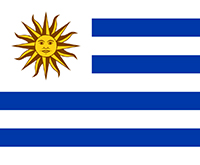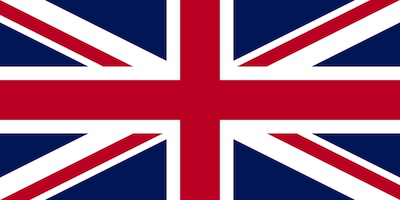ARVE error: Mode: lazyload not available (ARVE Pro not active?), switching to normal mode
Memories entangle with the trees as we wander into the forest
By Marta Medvešek for Radio Slovenija (2023)
Rest, peace and silence, but also sawing, creaking and crying; an elegant spruce and a beech with dense rustling leaves; harsh winters and a deer roaring in the moonlight.
In the conflicting juxtaposition of safety and danger, there is a different way of living that demands our deep respect and total presence. The residents of Lož Valley take listeners deep into the forest: not an urban one, but a real one. A place full of wonders, a carrier of memories, a source of calm and life. A forest as a part of self.
The piece was created as part of the larger project Whispers of Memory, which focused on researching and archiving the cultural heritage of the Lož Valley in rural Slovenia. Over the course of a week, the team collected around one hundred hours of sound recordings in collaboration with the local community. Primary school students interviewed local elders on how the soundscape had changed over their lifetimes. One recurring theme in these conversations was life in and with the forest — and from these stories, Forest is emerged.
Featuring: Milena Kraševec, Sonja Lipovac, Anton Mestnik, Milena Ožbolt, Andreja Ravšelj, Miha Razdrih, Boža Troha, Fani Truden, Ida Turk, Tone Udovič, Janja Urbiha, Leonida Zalar
Producer, sound design: Marta Medvešek
Mastering: Urban Gruden
Project team on location: Ana Čorić, Urban Gruden, Katarina Juvančić, Marta Medvešek, Ana Obreza, Saška Rakef Perko
Participating students (interviews & field recordings): Aljaž Dujo, Lea Lenarčič, Urh Anton Mlakar, Tadej Mihelčič, Patrik Ožbolt, Urška Ožbolt, Živa Palčič, Vili Strle, Marina Trivunčević, Martina Trivunčević
Special thanks to Félix Blume for his recordings available on freesound.org
Production: ARS Radio Slovenija 2023, within the framework of the project B-AIR – Sound art for babies, toddlers and vulnerable groups
ARVE error: Mode: lazyload not available (ARVE Pro not active?), switching to normal mode
Documentary recordings of laughter musically interweave in this imagined scene
By Stéphane Borrel (2024)
Les Anciens (The Elders) is part of a larger electroacoustic (acousmatic) work by Stéphane Borrel called Laughing Tonalities. The work uses as its essential sound material the laughter from recordings of three hundred invited participants.
Stéphane writes, “The musical writing – based on very precise sound selection, manipulation and editing – brings into focus the timbres, the rhythms and the pitches of this material. In addition, it takes into account a more evocative side which consists of recreating “plausible” scenes or portraits that highlight the different laughter types.
Les Anciens (The Elders) brings together two people who, in reality, have never met. Behind the touching scene, the couple’s good humour, their half-hearted understanding, we must also feel the laughter at the pain, almost a nasty cough; at the end, his breathing stops, then her breathing – insects and birds remain. This is one of the pieces from the Laughing Tonalities cycle which deals with the theme of ‘ages of life’.
I probably won’t choose… but if I could choose, I would like to end up like them: sitting outside on a beautiful evening, ‘comforted by the insensibility of nature’, as Milan Kundera writes, ‘because insensibility is consoling; the world of insensibility is the world outside human life; it is eternity; it is the sea gone with the sun [« c’est la mer allée avec le soleil » Arthur Rimbaud]. […] the gently inhuman beauty of the world before or after the passage of men.'”
Stéphane Borrel lives and works in Lyon, France. He writes for different ensembles and diverse electronics, ranging from chamber music to the symphony orchestra, from mixed music to sound installations or acousmatic pieces. He teaches composition at Conservatoire de Lyon. Learn more about Laughing Tonalities on Instagram.
ARVE error: Mode: lazyload not available (ARVE Pro not active?), switching to normal mode
Dreamscapes submerged in rising water
By Yevhenii Poliakov (2025)
Dreams calm down our worries. We overcome extreme experiences with the flood of feelings that our mind reworks each night. During the first months of the full-scale Russian invasion, water flowed through Ukrainian dreams. Recurring rains, floods and images of the seaside from the audio archive at the Center for Urban History inspired Yevhenii Poliakov to make a collage.
“We learned to live against the current. Now, when we, the survivors, our relatives and friends, are reaching the other shore, the premonitions from our dreams become a self-fulfilling prophecy. The word ‘victory’ sounds too noisy. The silence that falls after is deafening since we are afraid of what comes next.”
Yevhenii Poliakov is an independent artist and researcher from Lviv, Ukraine
Interviews from video and audio recordings of students from the Ukrainian Catholic University, their parents and teachers. The talks took place between March and August 2022. They are part of the thirty hour audio archives ‘Diaries and Dreams of War’ at the Center for Urban History in Lviv
The project was supported by a scholarship from the Institute for Human Sciences (IWM) in Vienna as a part of the “Documenting Ukraine” initiative.
ARVE error: Mode: lazyload not available (ARVE Pro not active?), switching to normal mode
A conversation grows from a chance encounter on a train
By Mattias Wallenius (2024)
“I met Lisa on a train in the summer of 2023. She sat down next to me and introduced herself (which is very uncommon on a public train in Sweden (and probably many places in the world)). I was going to my friends wedding. And when I asked her where she was heading, she simply replied: “I’m going to see the love of my life”. We talked the whole three hour trip and exchanged numbers. I called her six months later, in mid-December. And the second line she said after hello was ”it ended today”.
Mattias Wallenius is a radio producer and journalist based in Stockholm, Sweden. He also created the music for this piece. “He called me his typhoon” was nominated in Tempo Documentary Festival’s Short Dox Radio award in 2024.
ARVE error: Mode: lazyload not available (ARVE Pro not active?), switching to normal mode
A tender love story, lived in private, across five decades.
By Rūta Dambravaitė and Inga Janiulytė-Temporin for LRT (2024)
Vitalius and Albinas have been together for 52 years. As they grow old and Albinas’ memory slowly fades, Vitalius is tired of hiding and decides to tell their life story publicly for the first time. This documentary, created for LRT’s Radijo dokumentika series, tenderly unspools the years they’ve spent together.
Lithuania currently does not recognise either same sex marriages or civil unions. After ‘Coming Out‘ aired on Lithuanian radio, its online version quickly became the most shared and streamed episode in the show’s history. It reopened a public debate on human rights and led to activists organising a symbolic humanist wedding ceremony for Vitalius and Albinas. It was the first time Vitalius held Albinas’ hand in public. Twenty-one thousand people signed the certificate as witnesses – a document which Vitalius has now handed over to the national museum.
Produced by Rūta Dambravaitė and Inga Janiulytė-Temporin
Translation by Vaida Pilibaitytė and Justinas Šuliokas
Winner of the Prix Europa European Audio Documentary of the Year 2024 and featured at the EBU Audio Storytelling Festival 2024.
Rūta Dambravaitė is a journalist at Lithuanian National Radio and Television, LRT, creating audio stories for almost a decade. She produces the program Radijo dokumentika and covers global cultural events. Her stories focus on social, historical, and cultural topics. Currently, Rūta is studying visual anthropology and documentary practices at the University of Münster, Germany. She is always looking for ways to tell stories sensitively and responsibly, making an effort to understand her subjects and the context they come from.
Inga Janiulytė-Temporin has been working as an environmental journalist and audio documentary producer at Lithuanian National Radio and Television, LRT, since 2017. She is interested in untold stories and providing a platform to people and places that have not had access to it before.
ARVE error: Mode: lazyload not available (ARVE Pro not active?), switching to normal mode
A child plays in the snow
By Joyce de Badts (2025)
On a cold January day, Tirza conjures a snow ghost.
Joyce de Badts is a teacher and radio producer based in Antwerp, Belgium
ARVE error: Mode: lazyload not available (ARVE Pro not active?), switching to normal mode
The worlds of a vermin exterminator in Paris, young people living in the city and a disturbing public declaration from a police union blur together.
By Ka-Young Park and Dimitris Roidis (2023)
Nuisibles (Pests) is a sonic study in the process of dehumanisation. Touching on themes of police violence and systemic racism.
Created by Ka-Young Park a documentary maker based in Seoul, specialising in immigrant issues, and Dimitris Roidis a performer and sound artist based in Athens.
Special thanks to: our professor and mentor, Frédérique Pressmann, for her unwavering support, valuable guidance, and unique energy. We are deeply grateful for her honest mentorship. Also, we owe a lot to Pascaline Perreti from Louis Lumière for her support in the research and production as well as to Charlotte Rouault for her invaluable initial feedback and mentorship. Lastly, we would like to thank Stavroula Karatheodorou for her help with translation during several on-site interviews.
First played in London at In The Dark Radio’s ‘What’s New?’ night
ARVE error: Mode: lazyload not available (ARVE Pro not active?), switching to normal mode
“The whole world disappears with language…”
By Hrvoje Korbar and Marija Pečnik Kvesić (2023)
We easily recall the images, smells and tastes that have marked our lives, but what about the sounds? What about the voices of those who are no longer with us? What ultimately stands the test of time?
An intimate acoustic work by director Hrvoje Korbar and sound engineer Marija Pečnik Kvesić, La nave partira (The Ship Sails On) is a nostalgic dedication to family legacy, an audio reconstruction of fragments of personal and family memories and a farewell to a lost world and its languages.
Starting from the recording tapes the author found while clearing up the apartment after the death of his grandparents, the authors construct a collage of documentary footage, ambient sound, poetic autofictional texts and musical memories. The ephemeral nature of sound and human voice stands in opposition to the material nature of objects and images, the impermanence of memory trying to find its final form.
Winner of Best Short Form at the Prix Marulić (2024)



































